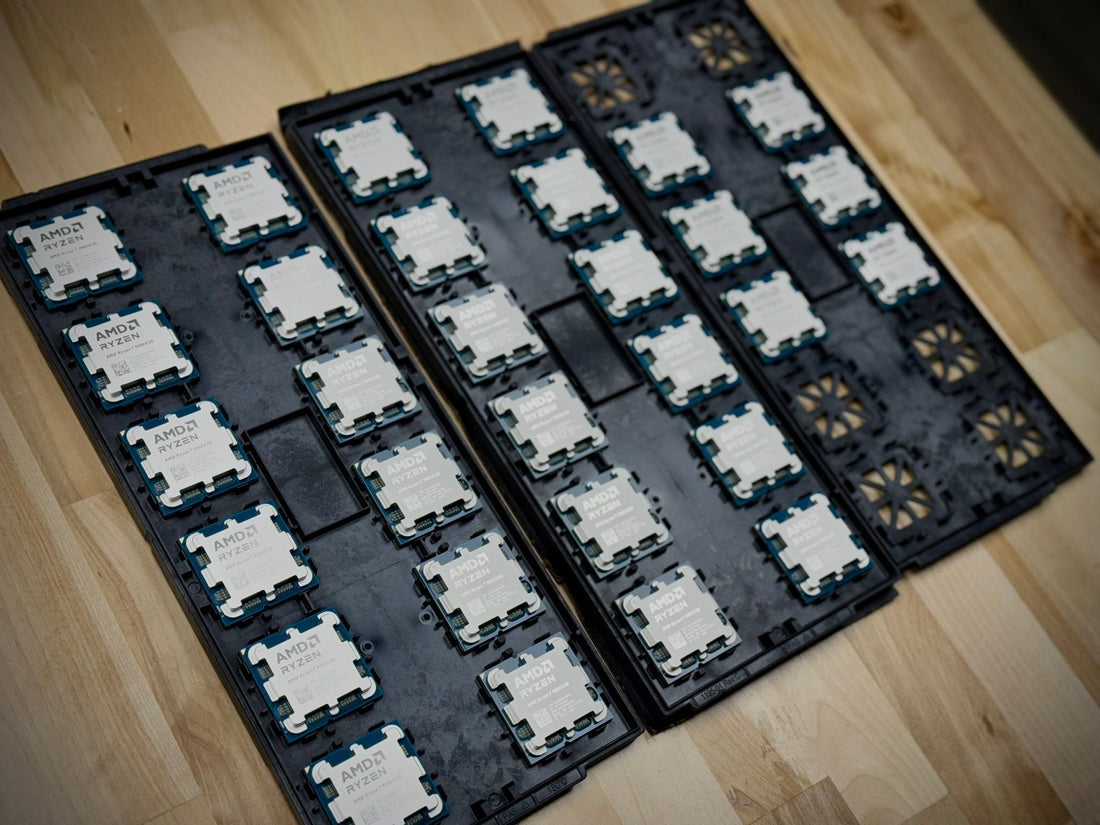
What Is A Tray CPU/ Processor?
First off, let’s get this out of the way:
CPU vs. Processor & OEM vs. Tray — Same Thing, Different Terms
For anyone new to PC hardware, CPU and processor are two terms for the same thing. The CPU, or Central Processing Unit, is the main component in a computer that handles most of the processing work. Whether it’s called a CPU or a processor, it’s the key part that keeps the system running.
What Is A Tray Processor?
A tray processor (also known as an OEM processor) is sold in bulk to system integrators or manufacturers who use them in systems made by companies such as Dell, Lenovo, and Asus. A tray processor lacks retail packaging and extras like a cooler. To keep costs lower, it also comes with a shorter warranty. Moreover, the warranty process for a tray processor is solely the responsibility of the system integrator or the bulk purchaser — not the manufacturer. As a result, manufacturers can offer competitive prices on tray processors due to the large volumes in which they are sold and the absence of direct customer support, which would normally be part of the process with a retail-boxed processor.
What Are The Differences Between A Tray And Retail Processor?
A tray processor and a boxed retail processor mainly differ in packaging and warranty. A boxed retail processor is sold individually, comes in branded packaging, and typically includes a cooler for selected models. It also includes a full three-year manufacturer warranty, which is reflected in the price. A tray processor does not come in retail packaging and does not include a cooler. Tray processors have a shorter warranty by default, and this, therefore, makes them cost a fair bit less than retail-boxed processors.
Are There Performance Differences Between Tray And Retail Processors?
Both tray and retail-boxed processors share the same product specifications — in other words, they consist of exactly the same silicon, with no differences or discrepancies. One might think a cheaper alternative may have some shortcomings, but in terms of performance, efficiency, and overall quality, there are zero differences when it comes to the processor itself. A Ryzen 7 9700X retail and Ryzen 7 9700X tray may well have been manufactured on the same production line, as there are no physical differences between the two.
Take, for example, these two images of a retail and tray Ryzen 7 5700X3D:



The Ryzen 7 5700X3D has absolutely no differences apart from the batch and serial numbers. Both CPUs share the same core (pun not intended, but let’s roll with it) product ID: 100-000001503.
On the Ryzen 7 5700X3D specification page, under "Product IDs," AMD lists the versions this processor is available in: boxed and tray.

By listing both boxed and tray product IDs on the same specification page, it indicates that both versions of the Ryzen 7 5700X3D share identical specifications.
Where Tray Processors Are Commonly Found
Pre-built systems. That’s right, every single one of them uses tray processors. Manufacturers choose tray CPUs because they keep costs down and allow them to offer warranties tailored to each system and brand. From Dell Alienware desktops to enthusiast-oriented systems built by UK specialist manufacturers, all rely on tray processors.
Whether it’s a Ryzen 5 7500F or a Ryzen 9 9950X3D, and everything in between, pre-built systems rely on tray versions of these AMD processors. The key point, and one we emphasise, is that tray processors deliver identical performance to their boxed counterparts. Their real advantage lies in their lower cost, which is exactly what we specialise at PC Tec UK.
We believe tray processors represent outstanding value, delivering the same top-tier performance as retail-boxed CPUs, making them a smart choice for builders and upgraders alike.
We hope you find the perfect processor on our site to power your next build!
